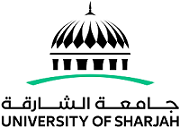Blind Source Separation of Mixed Audio Signals Using Deep Learning /
Linked Agent
Hussain, Abir Jaafar,, Thesis advisor
Alnajjar, Khawla, degree co-., Thesis advisor
Mahmoud, Soliman, degree co-., Thesis advisor
Date Issued
2024
Language
English
Keyword
Thesis Type
Thesis
Abstract
In the realm of signal processing, particularly within the domain of audio signal analysis, the separation of desired signals from complex mixtures is of paramount importance. This necessity arises in various applications, such as audio quality enhancement, speech recognition, music remastering, and source-specific signal isolation. Mixed audio files, encompassing human speech, silence, and music, are commonplace in media recordings, including radio, television, and satellite broadcasts. Accurate separation of these constituent signals is essential for tasks like volume adjustment, quality improvement, and identification. Blind source separation, a multidisciplinary field, seeks to recover independent source signals that have been combined through unknown mixing systems. This dissertation delves into the intricate landscape of blind source separation, exploring its applicability across audio, speech, silence, noise, and image separation. The need for a versatile blind source separation model adaptable to diverse scenarios becomes evident. Furthermore, within the context of contemporary signal processing, the dissertation addresses the burgeoning importance of blind source separation in the era of fifth and sixth generation networks. These networks demand robust communication systems capable of handling high-density environments, dynamic interference, and diverse signal sources. The integration of blind source separation techniques emerges as a solution to enhance signal extraction and separation, ultimately improving system performance. Moreover, this research endeavors to establish a nuanced understanding of the trade-offs and interplay between the speed and accuracy of blind source separation frameworks. A comprehensive systematic literature review of blind source separation is undertaken, encompassing extant methodologies, approaches, and applications, with a particular emphasis on frameworks grounded in artificial intelligence. Through rigorous scrutiny and analysis, this study elucidates the manifold techni
Note
A dissertation submitted in partial fulfillment of the requirements for the degree of Doctor of Philosophy (Ph.D.) in Electrical and Computer Engineering, Department of Electrical Engineering/Department of Computer Engineering, College of Engineering/College of Computing and Informatics, University of Sharjah, Sharjah, United Arab Emirates, Fall – 2023-2024.
Category
Theses
Library of Congress Classification
TK7881.4 .A573 2024
Local Identifier
b16749765

